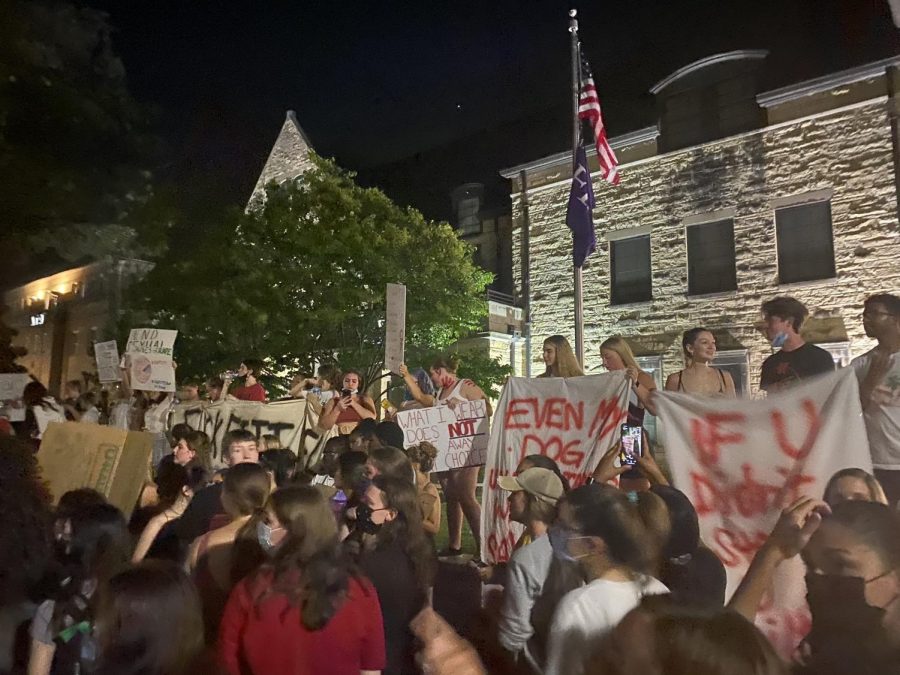One Month Since FIJI Suspension
Students protest in front of the Nebraska Union. Some participants held banners as others gave speeches.
Sep 29, 2021
It has been one month since the fraternity Phi Gamma Delta (FIJI) at the University of Nebraska-Lincoln was suspended on Wednesday, Aug. 25 due to sexual assault allegations and an ongoing investigation. Nineteen-year-old Max Helm allegedly raped a 17-year-old female student on the night of the first day of classes.
Multiple protests occurred on campus in front of the FIJI house, Nebraska Union, and around downtown Lincoln. Attendees chanted, brought signs, marched, shared personal stories and spoke out on the measures UNL made to address sexual assault within the university.
“I decided to go to the protests because I had a lot of close friends who were sexually assaulted or harassed in one way or another,” senior Kevin Amaro said. “It hurts me to see them that way, and the fact that there are many people like them and a community where they don’t feel safe is quite problematic.”
This isn’t the first time that FIJI has been suspended. According to an article published by CBS, from March 2017 to May 2020, the fraternity was suspended for a history of inappropriate behavior including “a pattern of sexually harassing conduct” that was uncovered in a university investigation.
In addition, 148 reports of rape, attempted rape, sexual assault and other sexual offenses have been reported between Jan. 1, 2016 and Aug. 27, 2021, many of which took place at fraternity houses. In the past five years, 80 of the cases remain open, leaving many frustrated with the news of another suspension of FIJI as opposed to a ban.
“Being a principal, and working in a district with a lot of different policies, I know that sometimes rapid action is not possible because there are procedures that must be followed,” LSW principal John Matzen said. “Any time that a student or students are feeling unsafe and unheard on a campus or at a school, then the school needs to continue to act and do more because clearly, people don’t protest if they feel like things are being addressed.”
With UNL located in Lincoln, some students at LSW may be affected by the recent events happening on campus. Matzen wants students to know there are multiple resources available to students who may be struggling or feel unsafe at school.
“Oftentimes, students have experienced trauma who then hear about an incident that might remind them or trigger that trauma, even if it’s not happening here, and won’t know where to go,” Matzen said. “I always recommend that students start in the counseling office. That might not be the final destination. We have a school psychologist, we have a school social worker, we connect to therapists in the community. There’s a lot of resources available there, our starting point is going into the counseling center and talking to your counselor because they know the path and the connections to help you get the help you need.”
Students interested in learning more about UNL’s response to recent sexual assault claims can read Chancellor Ronnie Green’s statement on sexual assault reports here.





